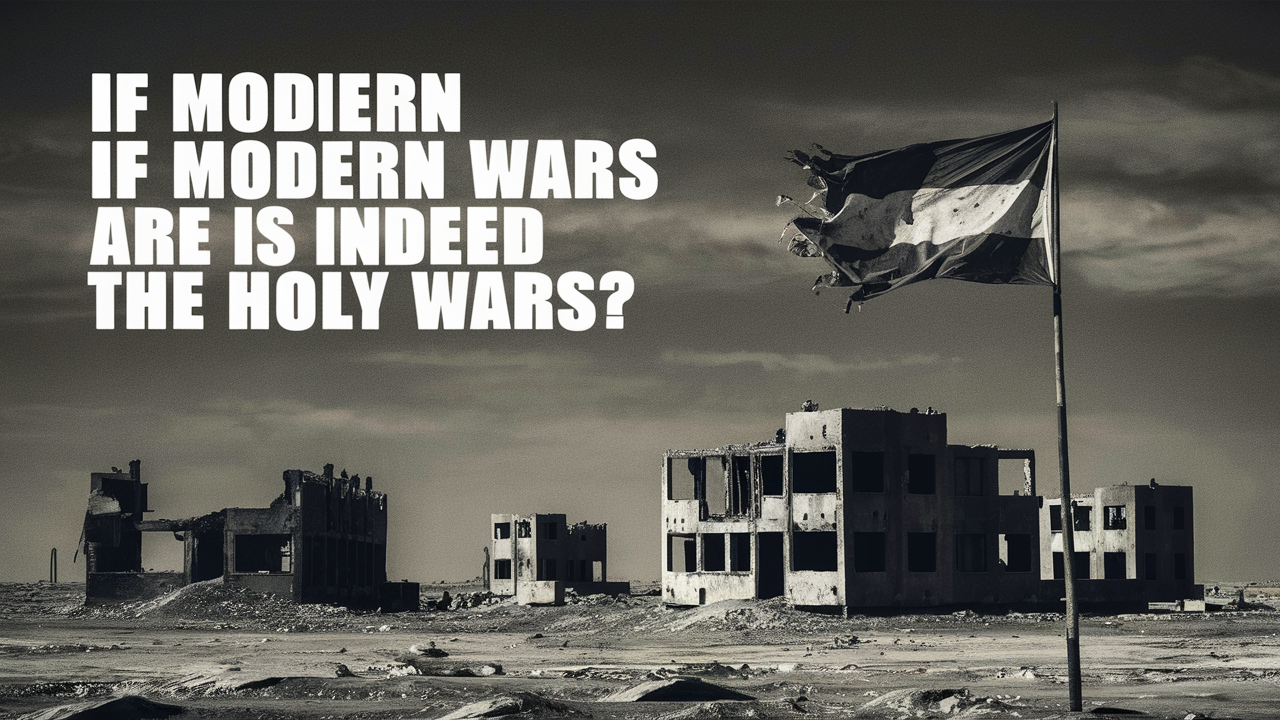9. Are modern wars not Holy wars? 2017

IntrodAre modern wars not Holy wars? 2017uction
Wars have been fought for various reasons throughout history, ranging from territorial expansion to religious ideology. In the modern era, wars are often fought under the guise of national security, but there are still instances where religious ideology plays a significant role in shaping the conflict. In this essay, I will explore the relationship between modern wars and religious ideology, and argue that while not all modern wars are holy wars, many conflicts have a religious dimension that cannot be ignored.
Defining Holy Wars
A holy war is a conflict fought for religious reasons, often with the belief that victory is not only a military victory but also a victory for a specific religion or belief system. Historically, holy wars have been fought between different religions, such as the Crusades, which were fought between Christians and Muslims. In modern times, the term “holy war” is often used to describe conflicts where religious ideology plays a significant role, even if the conflict is not explicitly fought in the name of a particular religion.
Religious Dimension in Modern Wars
Many modern conflicts have a religious dimension, even if they are not explicitly fought in the name of religion. For example, the conflict between Israel and Palestine has a religious dimension, as both sides claim religious ties to the land. Similarly, the conflict between India and Pakistan over the region of Kashmir has a religious dimension, as both countries have significant Muslim populations and the region has religious significance for Hindus as well. In both cases, religion plays a role in shaping the conflict, even if it is not the primary cause.
The Role of Ideology
Religious ideology can also play a significant role in shaping the ideology of a particular group or movement. For example, the ideology of Al-Qaeda is based on a radical interpretation of Islam, which has led to the group carrying out terrorist attacks in the name of jihad, or holy war. Similarly, the Islamic State of Iraq and Syria (ISIS) has used religious ideology to justify its brutal tactics and territorial ambitions. In both cases, religion plays a significant role in shaping the ideology of the group, which in turn shapes their actions and tactics.
Nationalism and Religion
Nationalism is another factor that can contribute to the religious dimension of modern wars. Nationalist movements often draw on religious identity as a way of defining the nation and its people. This can create tensions between different religious groups within a nation, leading to conflict. For example, the conflict between the Sinhalese and Tamil communities in Sri Lanka has a religious dimension, as the Sinhalese are predominantly Buddhist while the Tamils are predominantly Hindu. Nationalist rhetoric has been used to exacerbate these tensions, leading to a long-running conflict.
Conclusion
In conclusion, while not all modern wars are holy wars, many conflicts have a religious dimension that cannot be ignored. Religious ideology can shape the ideology of a particular group or movement, leading to conflict. Nationalism can also contribute to the religious dimension of modern wars, as nationalist movements often draw on religious identity as a way of defining the nation and its people. Ultimately, the relationship between modern wars and religious ideology is complex and multifaceted, and requires careful consideration and analysis.
visit: https://scholarshipresort.com/